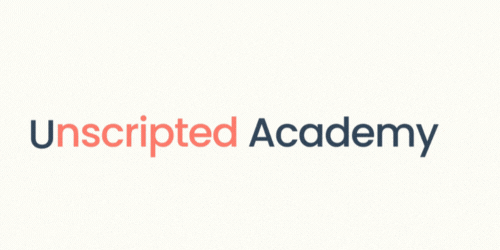How Improv Helps Students Build Confidence for Job Interviews


Understanding Improv and Its Principles
Improvisational theatre, commonly referred to as improv, is a form of live theatre where most or all of the performance is created spontaneously. This art form emphasises key principles that not only engage the audience but also foster significant personal development among participants. The fundamental principles of improv include spontaneity, collaboration, and adaptability, all of which contribute to a constructive and supportive environment conducive to self-expression.
Spontaneity is a core aspect of improv, inviting participants to embrace the unexpected. In a typical improv session, actors must think quickly and respond to their partners in real-time. This dynamic fosters the idea that there are no mistakes, only opportunities for creative exploration. Students who practice improv learn to let go of their fears and inhibitions, allowing them to express themselves freely without the weight of self-doubt or judgement. This environment lays the groundwork for building self-confidence, crucial for various life scenarios.
Collaboration is another essential component of improv, as it relies on teamwork and mutual support. Participants must actively listen and respond to one another, creating a space where everyone’s ideas are valued. This collaborative spirit encourages participants to practice empathy and strengthen their interpersonal skills. Furthermore, by working together towards a common goal, participants develop a respect for their peers, promoting a sense of community that enhances their overall confidence.
Lastly, adaptability. The ability to adjust to new information or unexpected change allows participants to cultivate resilience and flexibility. By learning to navigate uncertainty and embrace mistakes, participants form a growth mindset. This mindset is essential for personal and professional development, empowering participants to approach challenges with assurance and poise.
Improv Exercises for Job Interview Preparation
Improvisation exercises serve as an exceptional platform for students to hone vital skills that are directly applicable in job interviews. Among the myriad of activities offered in improv workshops, the 'Yes, And...' technique stands out as particularly noteworthy. This exercise encourages participants to accept and build upon the ideas of others, fostering a collaborative spirit. In the context of a job interview, this skill is invaluable; candidates often encounter unexpected questions or topics and must demonstrate the ability to think on their feet, responding thoughtfully and positively. By regularly engaging in 'Yes, And...', students develop the agility required to pivot in conversation, thereby enhancing their overall performance during interviews.
Another significant improv activity is role-playing. In these exercises, students take on various roles and scenarios, simulating the unpredictable nature of job interviews. Role-playing provides a safe space to practice articulating thoughts clearly and confidently, implementing newfound active listening skills. Students will also learn to navigate different personalities and questioning styles. This prepares them for real-world interactions with potential employers. This aspect of adaptability is also crucial, as interviews often require candidates to adjust their communication styles to the interviewer’s demeanor and approach.
Furthermore, engaging in these improv exercises substantially reduces the anxiety often associated with job interviews. By familiarising themselves with the unpredictability of questions and discussions, students can cultivate a flexible mindset. This preparedness fosters confidence, allowing students to approach interviews with a sense of ease rather than apprehension. In doing so, they not only enhance their communication proficiency but also build the self-assurance required to make a lasting impression on hiring managers. As they refine these essential skills through improv, students position themselves as capable candidates ready to meet the challenges presented during job interviews.
Building Communication Skills Through Improv
Improvisational theater serves as a dynamic platform for students to develop essential communication skills that are critical during job interviews. In today’s competitive job market, the ability to articulate thoughts clearly and engage effectively with potential employers is paramount. Improv activities enhance both verbal and non-verbal communication, allowing students to become more confident interview candidates.
One of the key aspects of effective communication is active listening. Improvisation inherently requires participants to listen attentively to one another, reacting spontaneously to their partners’ words and actions. This trained responsiveness instills the habit of being fully present in conversations, an invaluable skill during job interviews. Candidates who demonstrate strong listening skills are perceived as more engaged and interested.
Assertiveness is another crucial component within improvisational exercises. Students learn to express their thoughts and opinions confidently without diminishing the input of others. By participating in scenarios where assertive communication is necessary, individuals cultivate a sense of self-assurance that easily translates to a job interview setting.
Body language also plays a significant role in conveying a message. Improv fosters an awareness of non-verbal cues, such as posture, eye contact, and facial expressions. Engaging in improv encourages students to express themselves openly and authentically, which can enhance their charisma and presence during interviews. Candidates who possess a confident physical demeanor are often more persuasive and memorable.
Through a series of structured improv exercises, students can practice clarity in expression and build confidence in their delivery. These skills not only prepare them for job interviews but also empower them to engage more effectively in diversified professional settings.
Real-Life Success Stories: Improv in Action
Improv training has significantly transformed the interview experiences of numerous students, positioning them to confront high-pressure situations with increased confidence and poise. One compelling example is the story of Rachel, a recent graduate who found herself grappling with anxiety before her first job interview. Despite her academic accomplishments, the thought of articulating her experiences left her unsettled. After participating in a week-long improv workshop, Rachel discovered the value of spontaneity and learned to embrace uncertainty. This newfound approach allowed her to answer questions more fluidly during interviews, showcasing her personality and adaptability. As a result, Rachel secured a position at a prestigious marketing firm, attributing her success to the improv skills she acquired.
Another inspiring anecdote comes from James, a graduate student pursuing a career in software development. Initially, he struggled with effective communication. His technical skills during interviews were often lost due to a lack of clarity and confidence in communication. After enrolling in an improv class focused on communication strategies, James experienced a profound shift. His ability to think on his feet during mock interviews significantly improved, enabling him to communicate complex ideas with simplicity and clarity. Ultimately, he received multiple job offers and expressed that the improv training was crucial in reshaping his approach to interviews.
These success stories underline the transformative impact improvisation can have on students' confidence levels and job interview performance. For educators looking to incorporate improv into career readiness programmes, it is essential to emphasise the benefits of spontaneity, adaptability, and effective communication. Providing students with practical, hands-on experiences through improv exercises can equip them with valuable skills that extend beyond the classroom and into their future careers, fostering a generation of confident job seekers ready to navigate the complexities of the interview process.


